Big Red Book
Celebrating television's This Is Your Life
Ida COOK (1904-1986)
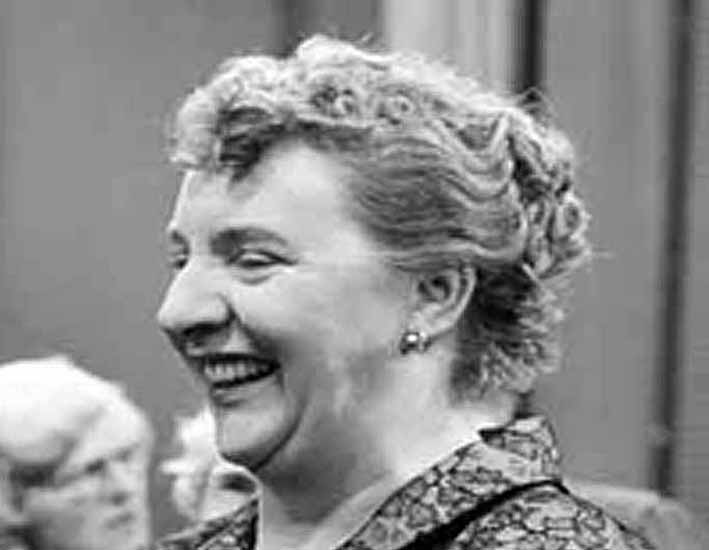
THIS IS YOUR LIFE - Ida Cook, novelist and campaigner, was surprised by Eamonn Andrews at the BBC Television Theatre, having been led to believe she was there to take part in a discussion programme called The Writing of Romantic Novels.
Ida's first novel, written while she was still working as a typist in the civil service, was published by Mills and Boon in 1935 under the pen name of Mary Burchell. The financial success of this and her subsequent novels enabled Ida and her sister, Louise, to travel the world enjoying their joint passion for opera. The sisters developed a friendship with the Austrian conductor Clemens Krauss and his wife, the soprano Viorica Ursuleac, who told Ida and Louise about the increasing persecution of Jewish people across Europe.
With a desire to help, the sisters used their genuine fanaticism for opera to explain their frequent visits to Germany and Austria. When returning to England, they smuggled valuables, such as jewellery, which allowed Jews fleeing Germany to Britain to satisfy the financial security requirements for immigration. As a result, Ida and Louise helped at least 29 Jewish families escape Nazi persecution while risking their own capture, imprisonment and torture.
"Perfectly wonderful evening... still happily dazzled"
programme details...
- Edition No: 11
- Subject No: 11
- Broadcast live: Sun 11 Mar 1956
- Broadcast time: 7.45-8.15pm
- Venue: BBC Television Theatre
- Series: 1
- Edition: 11
on the guest list...
- Walter Stiefel
- Louise - sister
- Jean Cleghorn
- Florence Taft
- Viorica Krauss-Ursuleac
- Alice Foskett
- Stanley Black
- John Slade
- Frau Jack
production team...
- Researchers: Peter Moore, Nigel Ward
- Writer: Gale Pedrick
- Director: unknown
- Producer: T Leslie Jackson
- with thanks to Doreen Montgomery at Rupert Crew and Anne Sebba for their contributions to this page
a page-turning good read
Viewers Watch Spirit Form On Their TV Screens
A report from Two Worlds Magazine
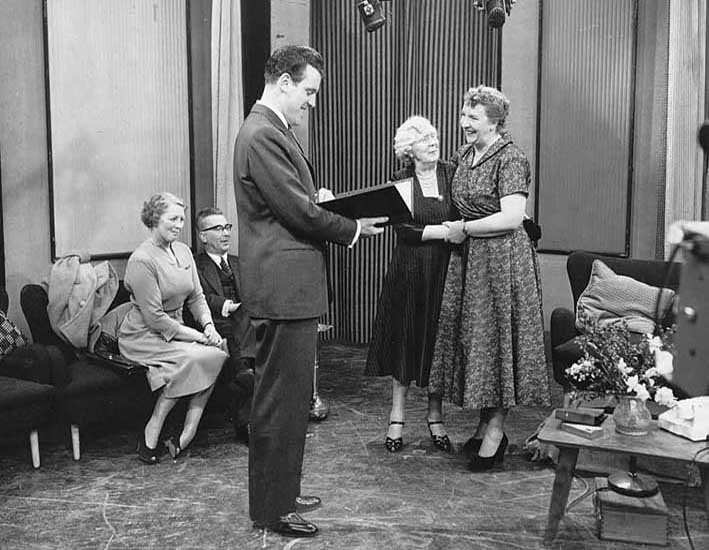
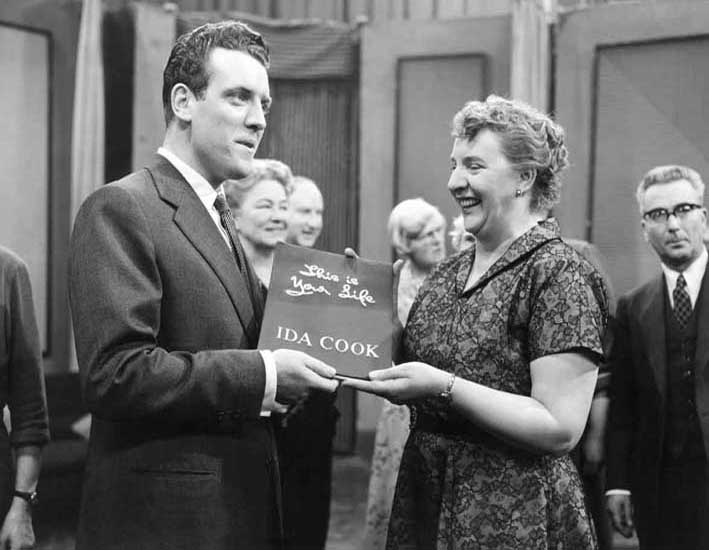
Photographs of Ida Cook This Is Your Life
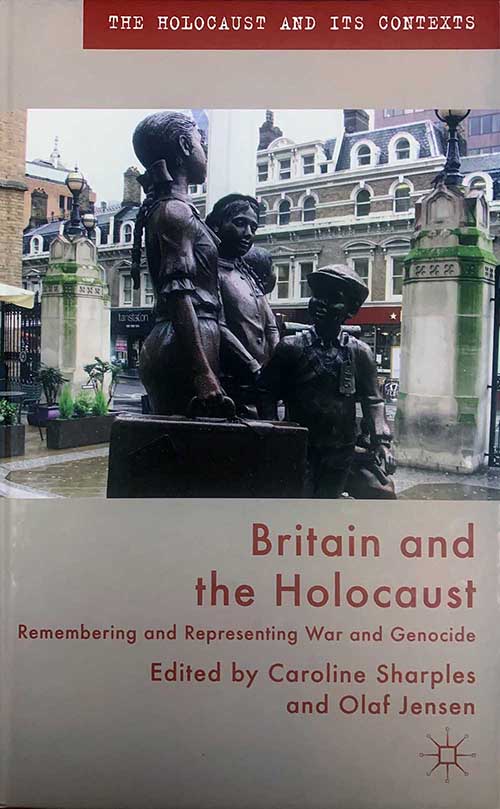
Ida Cook, tx. 11 March 1956
On the evening of Sunday 11 March 1956, Mary Burchell and Nancy Spain, two popular writers of romantic fiction, were taken to the BBC's Lime Grove studios to record a talk on 'The Writing of Romantic Novels'. There the lights were rigged to fail and the talk hastily rearranged for Television Theatre. It was only then that Eamonn Andrews revealed to Burchell that she was there not to give a talk, but to listen to 'a story more romantic than any fiction'. Burchell was the pseudonym of Ida Cook, who, with the help of her sister Louise, had been responsible for the rescue of Jewish refugees from Nazi Europe. The story of the Cooks was the subject of much press coverage in the early 1950s, with appearances on radio, television and the national newspapers. It is a story that has recently been the subject of a resurgence of interest thanks in part to Ida and Louise's receipt of the newly instigated 'Heroes of the Holocaust' award, to the republication of the autobiographical account of their experiences, and to a number of articles and books which have made the story familiar once again. Given her contemporary profile, it seems unlikely to have been true, therefore, when Andrews told Cook that evening that until 'a week or so ago', this was simply to have been 'the story of a writer with an unusual and intimate link with the world of Grand Opera'.
Suddenly half way through our investigations we hit on something far more interesting and dramatic. A story that might have come straight from the case-book of a modern Scarlet Pimpernel: at great personal risk you and your sister Louise delivered from Nazi persecution a company of distraught and desperate human beings.
There is no surviving copy of the programme: or indeed any of the five under discussion; however, a camera script, prepared in advance for the live broadcast, indicates that at that point there was to come from offstage a voice that belonged to a speaker whose identity was concealed from Cook and the audience. This piece of trickery would become one of the most eagerly anticipated parts of the show's routine.
OFF-STAGE: My mother and my father and I myself owe our lives to you, Miss Cook.
ANDREWS: A voice from those grim days of 1938. Whose is it?
(IDA may recognise...)
Yes. One of the many you saved, and one you haven't seen for many years - Walter Stiefel!
(WALTER enters - greets IDA)
You first met Miss Cook in Berlin, Mr Stiefel?
STIEFEL: Yes. On a street corner and believe me, It was a very dangerous thing for her to do. It was arranged for me to meet her at the station carrying an English newspaper, but they were banned on that day, and I had a Swedish paper. Miss Cook and I were unable to recognise each other but, later, I was able to phone her and arranged the street corner meeting. It is impossible for any of us to express adequately our gratitude to Miss Cook and her sister. But for them I do not doubt that I would have ended my life in a concentration camp I am very glad to have this opportunity of saying again - thank you, Ida and Louise Cook.
ANDREWS: And thank you, Walter Stiefel, for coming down from Manchester.
The story of Stiefel's flight was not discussed according to the remaining record. Instead he took his seat on the stage, a constant silent presence, while Andrews turned to Cook, telling her, and reassuring both the studio audience and the viewers at home, that this was not to be 'a horror story', but 'the story of two girls and how their love of opera and the people of opera led them into situations which needed tremendous courage and an unflinching faith in humanity'.
Over the next 30 minutes the programme recalled how Cook had worked for the Civil Service in inter-war London, developing a love of music and then opera. It was around 1935-36, the time of 'an insidious change' in Europe, that conductor Clemens Krauss and his wife Viorica Krass-Ursuleac asked Ida and Louise to look after Frau Mayer-Lismann and her family, 'the first refugees' saved by the Cooks. At this point the script indicates that there was a change of pace, with the dialogue replaced by a montage of silent footage of Nazi persecution as the programme merged past with present through the use of newsreels that would resonate with the audience:
Nazis Lash Britain Again (Headline)
Goebbels at Mic (Picture)
Smashed Shop Window (Picture)
Goebbels in Uniform (Picture)
Night Orgy of Looting (Headline)
Synagogue (Picture)
Goebbels with Troops (Picture)
Andrews continued, recalling how in their travels the sisters saw 'the terror of Nazi persecution as the hideous, inhuman menace it is. All around you, men, women and children by the hundreds of thousands have one thought - to get out before they are engulfed by a tide of blood and torture.' 'Do we need to be reminded now of the bestiality, the misery and the murder that went on in places that you had known only as cities of light and gaiety and melody?' he asked. He did not wait for an answer to his rhetorical question: 'Early in 1938, Austria is invaded. Later in the same year Czechoslovakia. In November the fuse is touched off.' And shortly thereafter the screen then cut to a second montage. this time starting with an image of Herschel Grynszpan whose assassination of Ernst vom Rath was the trigger for Kristallnacht:
Jewish Boy (Picture)
Shot Nazi Envoy Dies (Headline)
Jew with Placard (Picture)
As the images played Andrews provided a voiceover: 'A young Jew shoots a Nazi official and the hatred for the Jews is revealed in a crescendo of stark horror. The order goes out that every male Jew between the ages of sixteen and eighty is to be rounded up and sent to a concentration camp.' There was no further explanation, with the only pause being to allow Andrews to apologise to Cook for the subject matter, telling her 'I had no option but to recall these harrowing memories.' Andrews then continued to relay how the Cooks made regular trips to the continent, becoming 'the target for frantic appeals by men and women who knew that if they can't get out of Germany - and at once - they will die'. Their London flat becomes a 'clearing house for your refugees' until the onset of war finally makes it impossible for them to continue.
Most of the remainder of the programme focused on other aspects of Cook's life, but it returned to the rescue of Jewish refugees when she was joined onstage by Stanley Black, a tailor from whom Ida Cook had ordered a fur coat in post-war London. Black recalled for Andrews how he recognised Cook's name 'because I had heard about all she had done for the Jewish people, and felt so tremendously grateful.' A fur coat 'was to be my way of showing a little of my appreciation'. To conclude, the last section of Cook's Life brought her story up-to-date with the introduction of John Slade who was working with Cook in a DP camp at Landschutt, Bavaria, home to 1200 people from 16 different countries.
Cook later thanked producer Leslie Jackson 'for the perfectly wonderful evening'. 'It was', she wrote, 'just one of the most marvellous things that ever happened to me and I'm still happily dazzled.' It was in some ways a fitting tribute to a remarkable woman and story, but the victim's story remained marginal to a programme that was a celebration of a British rescuer which told of the Jewish experience primarily through familiar newsreel footage. The focus on the British hero would also be true later that year when the fourth episode of the second series surprised charity worker Sue Ryder, a guest who was adamant that the story that needed to be both told and heard was that of the victim and not rescuer.
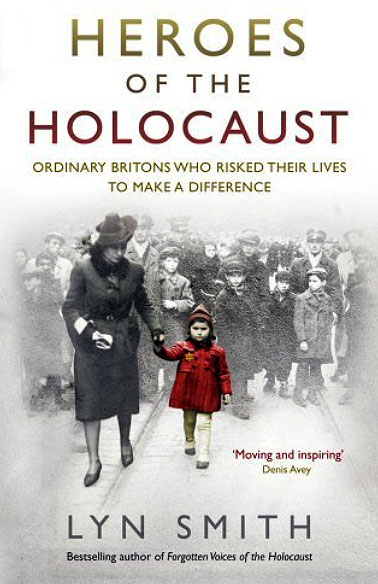
Ida's muse had reappeared after war had ended and she continued writing novels for Mills and Boon, albeit with a reduced readership as her style was becoming increasingly outdated. She did, however, become president of the Romantic Novelists' Association after it was formed in 1960, acting as mentor to a new generation of romantic fiction writers. Louise continued in her civil service work. They both gained great publicity when Ida published her book We Followed Our Stars in 1950 (re-edited as Safe Passage), fascinating readers with their tales of gala opera evenings and intimacy with the opera stars along with their daring undercover rescues into the heart of Nazi Germany and Austria. BBC broadcasts followed as well as a great deal of press coverage. Then, in 1956, Ida was chosen as a subject for the television series This Is Your Life, presented by the popular Eamonn Andrews. The show aimed to reconstruct the lives of unsuspecting subjects who had been lured into the studio - in Ida's case, Louise was given this responsibility. The appearance of participants in the story was central to the programme and an impressive group of people appeared for Ida including former refugees, significant people from the Displaced Persons camp in Bavaria and the Bermondsey shelter. Also, to Ida's great surprise and delight, Ursula, by then retired, appeared in person and a transatlantic telephone call was received from Rosa Ponselle. All paid tribute to the sister's incredible, often bizarre, story. [Bigredbook.info editor: Ponselle is mentioned in the programme's script, but other BBC documents indicate she did not take part in the actual broadcast]

The Wishaw Press and Advertiser 16 March 1956
THERE is a story of two sisters, Ida and Louise Cook. You may have heard something of this story last Sunday night when the life of Ida was 'star-lighted' in a programme called This Is Your Life. Ida Cook, who is also Mary Burchell the popular romantic novelist, has written a biography called "We followed our Stars," price 12/6, published by Hamish Hamilton. This is a book well worth reading, telling as it does, the tale of two girls who started with nothing and gained so very much in life through their own enterprise. A sentence quoted from the closing paragraph will give you an idea of the ideals of the Cook sisters.
"One should arrange one's life so that there is always something lovely to look back on and something lovely to look forward to." The story is alive with optimism, endeavour and determination to ask for nothing from the world, or from life, that one is not prepared to work for and pay back many times over. To girls just leaving school to embark upon life proper, this book is a God-send. It's impact would instil into their minds lessons of compassion and humility that would remain with them all their days. You may already be an ardent fan of Mary Burchell, the teller of romantic stories, and my guess is that if you read this biography, you will also be an admirer of Ida Cook, the doer of even more romantic deeds.

Morpeth Herald and Reporter 18 May 1956
At the Spring group meeting of the East Coast Women's Institutes, held in the Klondyke Store Hall, Cramlington, Hartford WI, were hostesses and their president. Mrs J. Brown, acted as chairman, when 278 members attended.
The hall was beautifully decorated with Spring flowers and plants, and Miss Ida Cook (Mary Burchall, the authoress) gave a talk on "Displaced persons in a Bavarian camp." By way of light relief, she told of her experience as the central figure in the television programme This Is Your Life.
Members were so moved by her talk on "Displaced persons" that a voluntary collection of £10 5s 0d was made in aid of the cause.
On the platform were Mrs T Clark (Guide Post), Mrs S. Philp (North Seaton), Mrs Spence (Scotland Gate) and Mrs Ross (Cambois).
Six beautiful prizes were given by Hartford members for the competition.
During the social half-hour, solos were sung by Mrs King and Mrs McNally, and members of Hartford Choral Society.
A very amusing mannequin parade was compered by Miss Rosemary Brown.
A play, "Escape to Fear", was produced by Mrs J. Brown.

Huddersfield Daily Examiner 5 April 1957
By Puck
"I'm not a lecturer. I just talk until I feel guilty about the time. Then I sit down." So said Miss Mary Burchell, the novelist, when she spoke at the Huddersfield Women's Luncheon Club meeting yesterday. Miss Burchell was such a natural and engaging speaker, however, that it is doubtful if ever a solitary glance was cast at the clock.
Her audience would probably have been happy to listen to her all afternoon.
Her experience when, as a young girl, she saved £100 to go to New York with her sister just to hear the celebrated Galli-Curci sing opera, and her work for refugees in Germany in the years before the war, which had a modern Scarlet Pimpernel touch about it, were among the reasons which led the BBC to choose her as a subject for their television show. This Is Your Life.
This Is Your Life
THE most difficult part of a This Is Your Life feature is getting the subject to the show without giving away the secret. In Miss Burchell's case she was inveigled to London under the pretext of an interview with Nancy Spain.
During the interview the lights "failed" and Miss Burchell and Miss Spain had to be rushed to an "emergency theatre."
It turned out to be the television studio where Eamonn Andrews was waiting to point to the novelist and say "This Is Your Life."
"A most indescribable emotional experience," was Miss Burchell's verdict.

Daily Mail 26 November 1957
SPEAKING to members of Hull Women's Luncheon Club about her experiences on television, Miss Ida Cooke, novelist and social worker, caused a ripple of laughter with her comment about television personalities.
Miss Cooke, who writes under the name of Mary Burchell, was being interviewed by a producer and he asked her if she knew Nancy Spain.
Before Miss Cooke had time to reply the producer continued, "Well, Miss Spain and yourself will be interviewed by Eamonn Andrews - of course, you know him."
Commented Miss Cooke, "I didn't know Nancy Spain. In fact, I'd never heard of Eamonn Andrews. That shook him."
Series 1 subjects
Eamonn Andrews | Yvonne Bailey | Ted Ray | James Butterworth | C B Fry | Johanna Harris | Donald Campbell | Joe BrannellyStanley Matthews | Henry Starling | Ida Cook | Lupino Lane | Hugh Oloff de Wet | Elizabeth Wilde | Robert Stanford Tuck